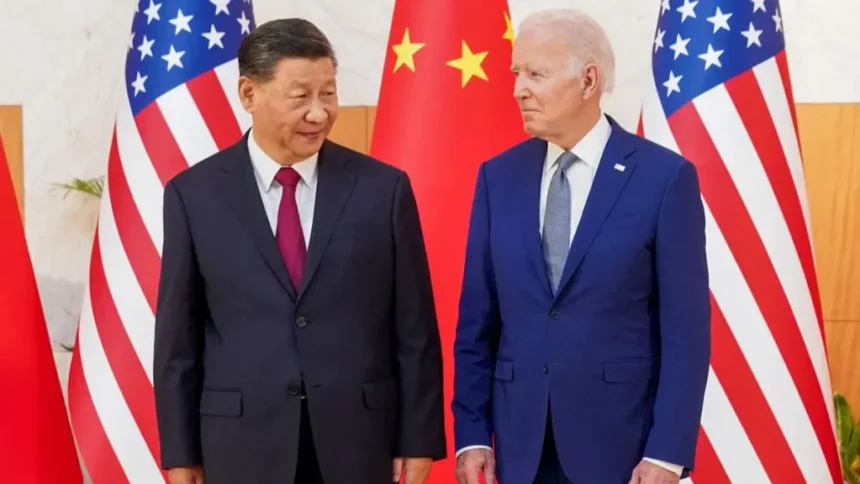The Biden administration’s push to enforce disclosure requirements for cloud companies regarding the use of artificial intelligence (AI) by foreigners has sparked debates among experts about its effectiveness and potential consequences. The move is seen as an escalation in the ongoing tech war between China and the U.S., with some experts praising it as a critical step in addressing the threat of AI from malicious foreign actors, while others express concerns about its impact on technological progress.
U.S. Commerce Secretary Gina Raimondo has hinted at the possibility of requiring tech companies to disclose whenever a non-U.S. entity uses their cloud services to train large language models. While Raimondo did not mention specific firms or countries, the measure is widely interpreted as an attempt by the U.S. to maintain an advantage over China in AI technology. President Biden has previously highlighted the importance of such disclosures in detecting potential cyber threats.
China’s rapid progress in AI development has raised concerns in the U.S. government, leading to previous restrictions on chip exports and sanctions against Chinese firms. However, China continues to make breakthroughs despite these measures, prompting the U.S. to explore new strategies. Experts argue that the proposed disclosure requirements demonstrate the U.S. government’s recognition of the threat posed by Chinese economic espionage.
Christopher Alexander, Chief Analytics Officer of Pioneer Development Group, believes that while the U.S. cannot completely prevent intellectual property theft by China, measures like disclosure requirements make it more difficult for Chinese firms to operate against the U.S. AI sector. He emphasizes the importance of a close government-private sector relationship in addressing this national security threat.
Jake Denton, a research associate at the Heritage Foundation Tech Research Policy Center, warns that losing the AI race to China could result in China becoming the dominant world power for generations. Denton urges the U.S. to secure critical AI technologies and ensure they serve national interests, comparing the situation to a “Sputnik moment” that demands immediate action.
However, not all experts are convinced that the proposed regulations will be effective. Samuel Mangold-Lenett, a staff editor at The Federalist, argues that the additional bureaucracy and reporting requirements may hinder technological progress. He suggests allowing American developers the freedom to develop robust systems while incentivizing data security. Balancing the need to prevent foreign adversaries from accessing critical technologies with the promotion of innovation remains a challenge.
The potential impact on U.S. cloud providers is also a concern. The fear is that restrictions on American companies without similar actions by allied countries may put them at a competitive disadvantage. Phil Siegel, Founder of the Center for Advanced Preparedness and Threat Response Simulation, warns that such regulations could lead foreign firms to seek alternatives and shift business away from the U.S. This, in turn, could slow overall development and raise costs.
The specific regulatory framework for the tech industry’s dealings with foreigners and the potential for regulatory retaliation by other countries remain unclear. The concerns raised by experts highlight the complex nature of balancing national security with technological progress in the AI sector.
The White House has not yet responded to requests for comments on the matter.



